Crazy Heart
 for language and brief sexuality.
for language and brief sexuality.
Reviewed by: Scott Brennan
CONTRIBUTOR
| Moral Rating: | Very Offensive |
| Moviemaking Quality: |
|
| Primary Audience: | Adults |
| Genre: | Drama |
| Length: | 1 hr. 51 min. |
| Year of Release: | 2009 |
| USA Release: |
December 16, 2009 (limited) February 5, 2010 (wide—500+ theaters) |
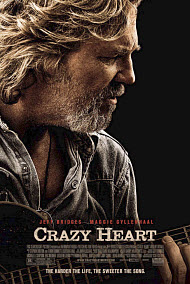

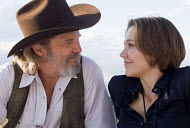
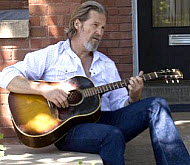

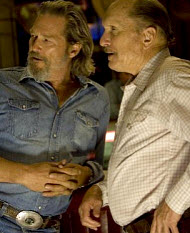


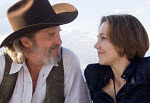
Music in the Bible
What is true love and how do you know when you have found it? Answer
DIVORCE AND REMARRIAGE—Under what conditions may Christians divorce and remarry? Answer
What does it mean to be “the husband of one wife”? Answer
Marriage in the Bible
Is formalized marriage becoming obsolete? Answer
Many people are convinced that traditional marriages don’t work and that this practice should be abandoned. What does the Bible say about marriage?

Why is there a disconnect between Hollywood and the rest of America? Answer
What is being done to change the values of Hollywood? Answer
| Featuring |
|---|
|
Jeff Bridges Maggie Gyllenhaal Robert Duvall Colin Farrell See all » |
| Director |
|
Scott Cooper |
| Producer |
| Butcher’s Run Films, Informant Media, Eric Brenner, Jeff Bridges, T-Bone Burnett, See all » |
| Distributor |
 Fox Searchlight Pictures, a sister company of 20th Century Fox, a division of The Walt Disney Company |
“The harder the life, the sweeter the song.”
based on Thomas Cobb’s novel Crazy Heart
“I used to be somebody, but now I am somebody else,” is a line out of one the songs Jeff Bridges sings early on in the film, “Crazy Heart.” Not only is that true about the character he plays in the film, Bad Blake, but it’s also true about the perception movie goers like myself will have after seeing this film. For me, Jeff Bridges used to be “Star Man,” “The Fisher King,” “The Fabulous Baker Boys,” “Tucker,” “The Big Lebowski,” “The Contender” (the list could go on), but now he is somebody else. He has embodied the character of Bad Blake, a country western legend on the skids, doing gigs in bowling alleys and bars, and pretty much anywhere his manager can get him a job—from Phoenix to Houston. You know the genre, it hasn’t changed much. Bad Blake seems like someone we know real well, because he’s an archetype that’s become part of the American consciousness, one we both love and loathe at the very same time.
This is the debut film of writer and director, Scott Cooper, (co-starred in “Gods and Generals”), and was a collaborative effort between Cooper, Robert Duvall (a mentor, producer), T-Boone Turner (Co-producer, music—Co-written with the late Stephen Bruton), and Bridges (lead actor, executive-producer), and based on a book by Thomas Cobb.
The plot is so predictable, that it barely needs to be put in writing. But here is the 8x version, if you are using your fast forward button on the DVR remote control: Bad Blake is road weary and broke, and at 57 you can see he’s not thrilled about doing these small town venues much longer, especially in light of the legend he once was. He has no excuses about his bad marriages, bad boozing habits, or bad performances, (like running off stage to vomit outside during a song because that last heavy shot of McClure’s Whiskey was one to many), because, as he says in the film, “My name’s Bad because I was born bad.” His manager (James Keane) keeps him floating from bar to bar, giving him one night at a time with a handful of supportive fans, and an occasional trick to bed at the end of the night. Bad meets Jean Craddock (Maggie Gyllenhaal) a local reporter in a small town wanting to do a feature article on a former CW legend. Sparks start to fly during the interview, but the babysitter is waiting, and she leaves. Bad invites Jean back to his motel for a second interview, and the relationship begins. Bad Blake meets Jean’s little boy (Buddy), and the only stipulation is he can’t drink around her son. Well, you know where that will lead. It was easily foreshadowed one day when Blake said to Buddy on the way to the playground, “We need to go get us into some trouble.” And Buddy answered adorably, “Yeah, big trouble.” And trouble it was for all of them.
Positives
Because this is Scott Cooper’s first film, I would have to give him a pass—if I were grading on a pass/fail system. He was able to pull it off with some top performances and some great music. Barry Markowitz’s photography work is able to capture some awesome outdoor shots of God’s handiwork in the southwestern skies. Psalm 19:1 — “The heavens declare the glory of God; and the firmament shows His handiwork.” His cinematography really added quite a bit to the film, giving the viewer the needed time to reflect between scenes while creating a sense of Bad Blake’s seemingly endless journey—wandering, like a vagabond in the desert.
Maggie Gyllenhaal’s performance is probably as good as it could be, considering the character she had written for her in the script. She had me really believing she was finally moving away from the classic “enabler,” until the script took a turn that made me mistrust her character on the “believe-ability scale” for the remainder of the film, something that was really out of her control. Hollywood does have to market their films, which, sadly, often removes the potential value in the message that might be left behind otherwise.
Others worthy of recognition in the film include Colin Farrell’s smaller role as the former protégé of Bad Blake, Tommy Sweet. He plays “second fiddle” to the title role in the film pretty well [Note to his agent: Get him more supporting roles in the future.] and did a surprisingly fine job on vocals. The duet with both Farrell and Bridges on stage is a great moment for the big screen. After years of watching them both in such varied lead roles, the singing duo provides its own value in entertainment—almost separate from the film itself—which may or may not have been a good thing.
Finally, the musical score by Stephen Bruton and T-Bone Burnett is excellent, and sadly will be a final tribute to Stephen who passed away last May 2009. Most impressive to me is the title song which I’ve been humming ever since I left the theater on Saturday, “The Weary Kind,” written by 28 year old country song writer Ryan Bingham, who, after this film, will probably become a household name. He sings it when the credits are rolling, so you can’t help but take it with you.
Objectionable Issues
It should not come as surprise that that in an “R” rated film there are objections for the Christian, particularly in this genre. There is quite a bit of profanity (including the “f” word, at least once) especially in the first half of the film, and GD was used more than I would have expected, which is fairly hard to endure. A joint is passed once during the film, with his band buddies at the bowling alley. There is excessive drinking throughout most of the film, accompanied by an occasional visit (or two) on his knees—to the white throne. (And I don’t mean “The Great White Throne.”)
There are obvious references to former divorces in both their lives, as well as the fornication that is continuous throughout their relationship in the film. The fact that Jean (Gyllenhaal) is able to get right into the sack with him on their second encounter, is a bit odd, considering she is supposed to be a local reporter. In addition, Jean has Jake spending the night at her house on a regular basis which—despite what she says about wanting to protect her young kindergarten age son—isn’t setting a very good example. The sexual scenes are short, but imply more than they show. There are some longer kissing scenes and a few with some romping and rolling on the bed—that is when Blake isn’t passed out. Blake’s slovenly attitude in the cheap motel rooms often manifest with his shirt unbuttoned and his belt unbuckled to sustain the image, but not much more than that. There is one other shot early in the film, where he sneaks out of bed, and tiptoes out of the motel room, leaving the woman asleep after their obvious sexual escapade.
Some of my other objections concern the weakness of the script. Despite her competent acting ability, I felt that Gyllenhaal’s character would not have fallen for Blake, someone 25+ years her senior. Not that there aren’t young women looking for sugar daddies, who might be enamored with aging-has-been-country-stars, it’s just that she seemed too smart and too kind. It was a difficult balance to write into the script, creating a character for us to believe would care for him, so that we would. Perhaps it was the casting, I’m not sure, but it just didn’t work for me.
In addition, the recovery center scenes seem shallow, and Blake’s resulting almost instant transformation required me to suspend more disbelief than I was ready to at that point in the film. Although it is good to see Robert Duvall on screen (Wayne—the bar owner), it felt kind of odd (storyline wise) to see him promoting Blake’s recovery, while maintaining his bar ownership. Finally, the ending felt like it was attached with scotch tape. It just seemed to me like there were about 17 different ending possibilities and the wrong one slipped in accidentally. It isn’t your traditional “Hollywood ending” (because then I would have been even more disappointed), but it had a lot of compromise in it, watering down whatever “punch” the film had left, which at that point, was not much.
Summary and Spiritual Significance
The redemption theme is present in the film, but you don’t get the sense that any real change has taken place for the right reasons. In Acts 17:30, the scripture says: “In the past God overlooked such ignorance, but now he commands all people everywhere to repent.” I’ve heard it said by former alcoholics that you hit bottom when you put down the shovel and turn your life over to God. You see Bad Blake put down the shovel, but there isn’t even a mention of a higher power, which begs the question, “Is this just another act of “self-will” trying to get its way through some other means?” Jesus says in Matt. 4:4, “Man does not live by bread alone, but by every word that comes from the mouth of God.” I didn’t get the sense that Otis Blake was depending on anyone but himself. One of the lines in the song that he is writing throughout the film goes like this: “This ain’t no place for the weary kind. Pick up your crazy heart and give it one more try.” Jesus said in Matthew 11:28, “Come to me, all of you who are weary and carry heavy burdens, and I will give you rest.” I got the distinct impression that Blake’s “one more try” was not going to be with God’s help. And that, based on Blake’s track record, is a recipe for disaster—maybe even worse than where he left off.
Despite how I feel about the movie overall, I can’t overemphasize the quality and authenticity of Jeff’s performance as an actor. The singing, the complete and utter fluidity of his character on screen as the believable alcoholic with just enough sparkle that we might want to care about him, it’s all there. Bridges is currently gaining momentum to pick up the coveted, Best Actor Oscar®, having just recently garnered a Golden Globe Nomination in the same category. If he gets a nomination, it will be his 5th, but, of course, that’s only half way there. Beating out the competition will be tough for Bad Blake. However, Robert Duvall’s character in the film (Wayne) has a memorable line that he uses on a fishing trip that’s a perfect fit here: “It’s never too late, son. It’s never too late.” That might be something for Jeff to hang onto, coming from the mouth of the man who won the Best Actor award for a similar role as Mac Sledge, in the 1983 movie, “Tender Mercies.” If you are a believer, take my advice, cheer for Jeff at Oscar time but, as for watching an uplifting, meaningful and satisfying film, save your money and go rent “Tender Mercies” instead. You really won’t be missing that much, by missing this film.
Violence: Minor / Profanity: Heavy / Sex/Nudity: Minor
See list of Relevant Issues—questions-and-answers.


We see that given the choice to despair at losing something desired(no spoilers here) a person can lean on their God-given talent and strength and walk on in their life. I believe it is God who gives us that abilty to overcome what keeps us from living to the full, but I do not expect Hollywood to reveal this truth in any film in an overt way.
This is a film about the consequences of one’s choices and defeats in life and the potential we all have to walk forward and overcome.
Moral rating: Offensive / Moviemaking quality: 4½
As for marriage, it is only meant for those who love God and love one another.
Moral rating: Very Offensive / Moviemaking quality: 4



My Ratings: Moral rating: Very Offensive / Moviemaking quality: 4